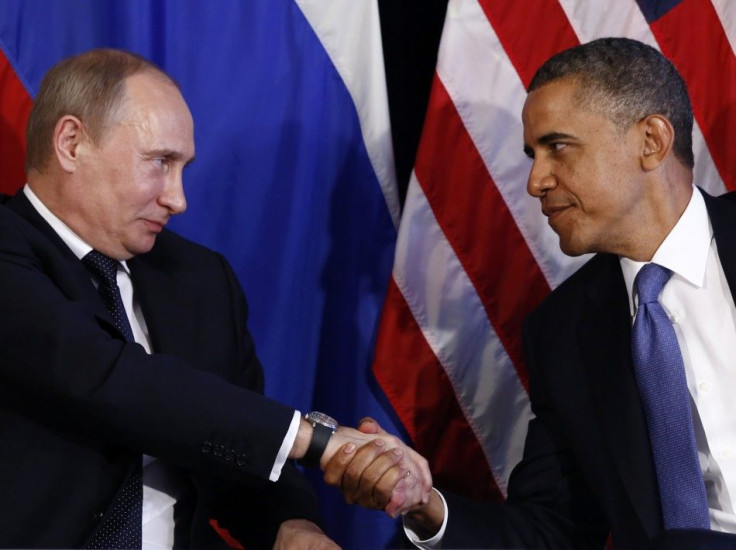Obama’s Foreign Policy: An Epic Fail

College students call something that has gone completely wrong an “epic fail.” Today, the foreign policy of U.S. President Barack Obama fully merits this label. In the last few months, it has become exceedingly clear not only that the administration has no idea how to relate the use of force to diplomacy but also that it is safer to be America’s adversary (or even its enemy) than to be its ally.
The fiasco in Syria – in which Obama drew "red lines" against President Bashar Assad regime’s use of chemical weapons, only to erase them in the absence of both an acceptable political goal and popular support – is well known. The administration’s vacillation opened the door for Russia, which bailed out the White House with a diplomatic deal that the administration was only too eager to seize.
Since then, Moscow has concluded major energy and/or arms deals with Syria, Iran, Iraq, Lebanon and Israel, while steadily flooding Syria with arms. Syria’s pledge to disarm, meanwhile, remains unmet; at last tally, the Assad regime had shipped out less than 5 percent of its chemical weapons, ensuring its lengthy tenure in office.
Then there's Iran. Whatever the merits of the interim nuclear deal struck between Tehran and the P5+1 powers back in November, the reality is that Western sanctions are rapidly coming apart – and that Russia, through both arms and energy deals, is helping to dismantle them.
The war in Afghanistan, too, is of consuming interest to the administration. But Obama’s flirtation with a potentially disastrous “zero option” in Afghanistan raises the very real possibility that the Taliban could become the natural inheritor of the country just as soon as Coalition troops depart at the end of this year. Meanwhile, the White House’s policy of counterterrorism via drones has antagonized Pakistan, while doing nothing to sever the deep links between that country’s intelligence service and Islamic radicals.
In East Asia, China’s unilateral declaration of an unlawful Air Defense Identification Zone over its own, Japan’s, South Korea’s and Taiwan’s airspace evoked only muted protest from the White House, which told civilian airliners to avoid provoking China by providing warning as they approached. Similar Chinese efforts to unilaterally impose its will on Southeast Asian states and territories have encountered a similarly feeble (and therefore provocative) response.
In Europe, the Obama administration has concealed from Congress and our NATO allies Russian violations of the Intermediate-Range Nuclear Forces (INF) Treaty for months if not years, briefing NATO allies on the breaches only a few weeks ago. As it turns out, Secretary of State John Kerry never even raised this issue with Russian Foreign Minister Sergei Lavrov or lodged a formal protest about Moscow’s violations of one of the enduring cornerstones of international stability.
Meanwhile, in Ukraine, the administration has done nothing meaningful to support anti-regime protestors, while Moscow has brought enormous pressure to bear on the country in support of its pro-Kremlin president, Viktor Yanukovych.
This passivity and unwillingness to criticize Moscow is mirrored by the utter absence of interest in what is happening in the Caucasus or Central Asia, where the administration’s vaunted “Silk Road” policy has become a bad joke. Neither Obama nor any other cabinet official has expressed any interest in the “post-Soviet space,” even though Secretary Kerry, as chairman of the Senate Foreign Relations Committee, authored a major report on the Silk Road in 2011.
Clearly, as scholar Walter Russell Mead has written, the area east of Germany and West of China is of no particular interest to the current administration.
The Middle East, however, is, and Secretary Kerry has been single-minded in his zeal to bring about a peace between Israel and the Palestinians -- even though the Palestinian Authority still shows no sign of willingness to accept Israel’s existence and insists on threatening Israel with either another Intifada or a boycott if it does not accept Kerry’s terms.
Under the circumstances, it should come as no surprise that a sense of U.S. retreat and abandonment has proliferated abroad, and that American allies are busy making deals with Moscow and Beijing. If our officials had any sense of history or reality, they would know that such strategic incompetence only invites further advances from our adversaries. “Epic fail” indeed.
Stephen Blank is Senior Fellow for Russia at the American Foreign Policy Council in Washington, D.C.
© Copyright IBTimes 2024. All rights reserved.





















